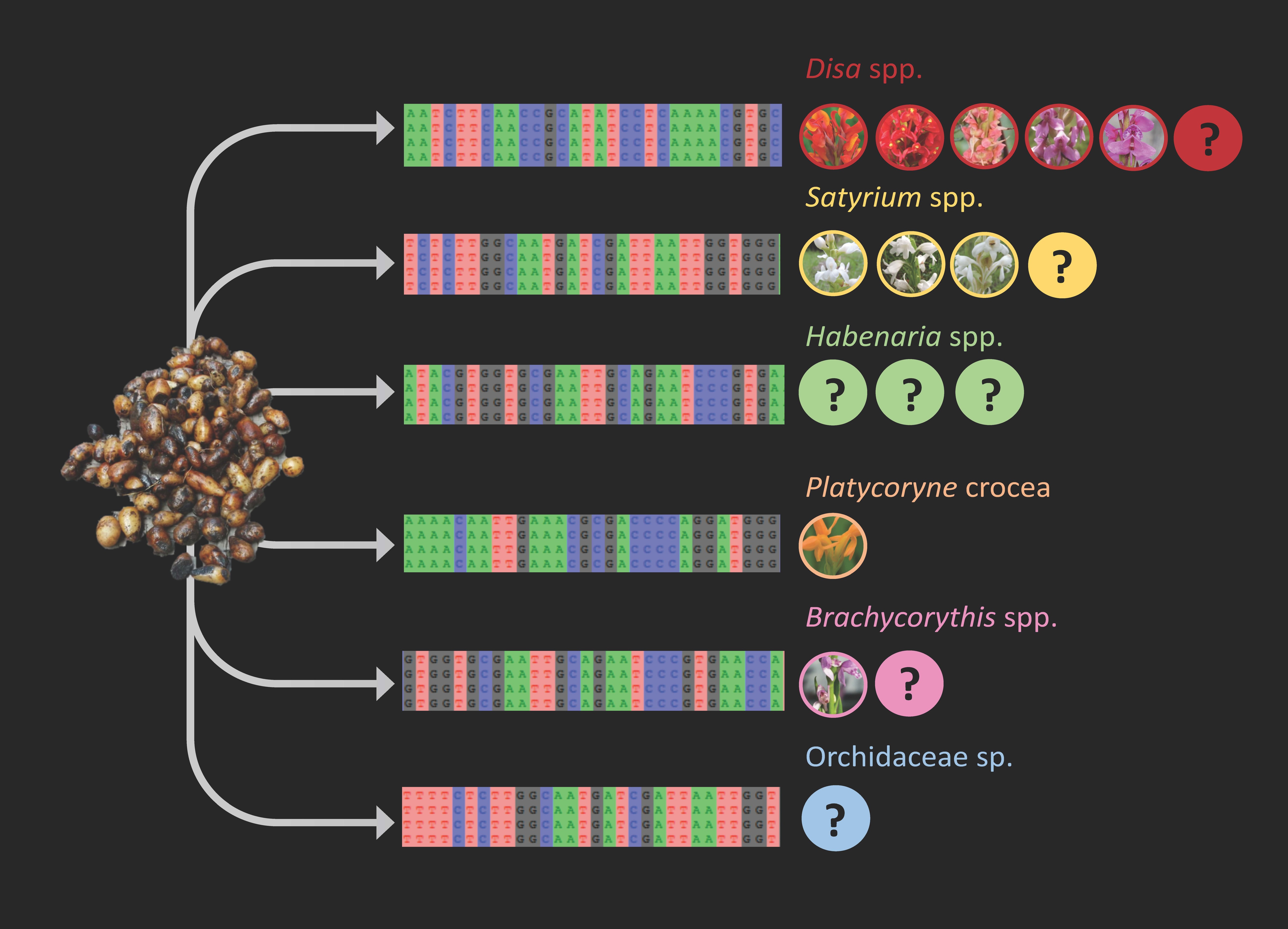In Zambia wild edible terrestrial orchids are used to produce a local delicacy called chikanda, which has become increasingly popular throughout the country. Commercialization puts orchid populations in Zambia and neighbouring countries at risk of overharvesting. Hitherto, no study has documented which orchid species are traded on local markets, as orchid tubers are difficult to identify morphologically. In this study, the core land-plant DNA barcoding markers rbcL and matK were used in combination with nrITS to determine which species were sold on Zambian markets. Eighty-two interviews were conducted to determine harvesting areas, as well as possible sustainability concerns. By using nrITS DNA barcoding, a total of 16 orchid species in six different genera could be identified. Both rbcL and matK proved suitable to identify the tubers up to genus- or family level. Disa robusta, Platycoryne crocea and Satyrium buchananii were identified most frequently and three previously undocumented species were encountered on the market. Few orchid species are currently listed on the global IUCN Red List. Local orchid populations and endemic species could be at risk of overharvesting due to the intensive and indiscriminate harvesting of chikanda orchids and we therefore encourage increased conservation assessment of terrestrial African orchids.

